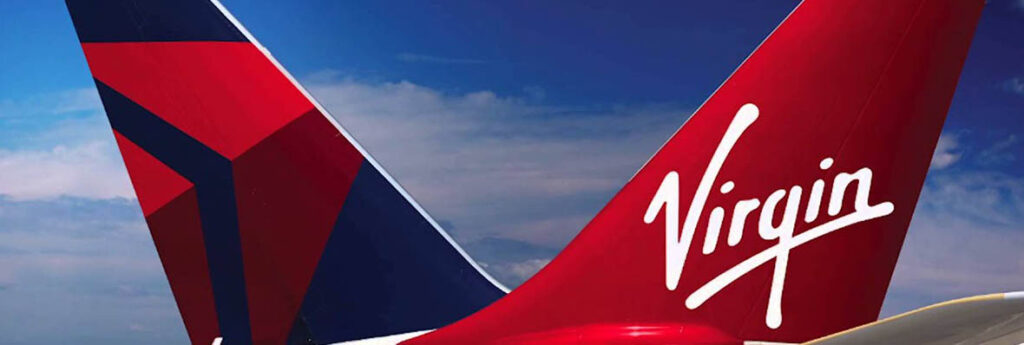Delta Air Lines lost US $5.7 billion during a brutal three-month stretch in which the coronavirus pandemic brought travel to a near standstill, and any hoped-for recovery has been smothered by a resurgence of infected Americans. Delta CEO Ed Bastian said it will take more than two years for the airline to make “sustainable” recovery.
Delta is the first US airline to report financial results for the May-through-June quarter, and the numbers were ugly.
Passengers boarding Delta planes tumbled 93% from a year earlier, revenue plummeted 88%, and the company’s losses were worse than anticipated.
Airlines are expected to furlough thousands of workers when federal aid to help cover payroll expenses runs out on Oct 1. Bastian held out hope that Delta might avoid those cuts because 17,000 of its 91,000 employees have accepted early retirement. Another 35,000 are taking unpaid leave in July.
The most important financial measure in the airline business right now is cash burn, which determines how long carriers can keep flying while travel remains severely depressed.
Delta has about 19 months worth of cash and short-term investments at its current burn rate of US $27 million a day. Back in March, Delta was blazing through nearly US $100 million a day.
What’s missing now are enough passengers willing to buy a ticket.
“There is a lot of it that is out of our control,” Bastian said in an interview.
Air travel within the United States fell 95% from the start of March until mid-April, when fewer than 100,000 people boarded airline planes on some days, down from more than 2 million a day a year earlier. That rose to more than 700,000 on the best days, but it has hit a plateau in July, coinciding with increased COVID-19 cases across the Sun Belt.
Delta, along with Southwest and JetBlue, has limited capacity to about 60% on domestic flights. United and American don’t block seats.
Airline customers have historically put a priority on fare prices, but Bastian thinks that could be changing. Customers are telling the airline they are uncomfortable boarding packed planes, and fully booking flights “is not what Delta is going to do,” he said.
Delta has promised to cap seating through Sept. 30.
Delta depends on business travel for an outsized share of its revenue and profit. Bastian acknowledged that corporate travel will be slower to recover than leisure as in-person meetings are replaced by Zoom calls.
Delta’s second-quarter loss compared with a year-ago profit of US $1.44 billion during what is normally a strong season for airlines.
The loss included more than US $2 billion in write-downs for Delta’s investments in Latam Airlines, the biggest carrier in Latin America, and Aeromexico and Virgin Atlantic. All have filed for bankruptcy or the equivalent.
Excluding those items, Delta said its adjusted loss worked out to $3.9 billion, or $4.43 per share, wider than the US $4.16 industry analysts surveyed by FactSet had expected.
Revenue nosedived to US $1.47 billion, down from US $12.54 billion last year.
Delta is getting US $5.4 billion in federal aid to help pay workers through Sept. 30 and has been offered a US $4.6 billion loan by the Treasury. It hasn’t decided whether to take the money because it could find better terms on the private market.
Delta shares fell 3% Tuesday.
Meanwhile at Virgin Atlantic…
The airline has raised £1.2 billion ($2.05 billion) from private sources, including from founder Richard Branson, the company said Tuesday, as it tries to rebuild its battered finances following the economic shock of the coronavirus pandemic.
Branson’s Virgin Group will provide £200 ($432) million, while Delta Air Lines, which owns 49% of the airline, has agreed to defer payments due to it. Hedge fund Davidson Kempner has also agreed to lend Virgin Atlantic £170 ($290.6) million.
New private investors and existing creditors have also agreed to help out in the 18-month package that the airline hopes will see it through the pandemic, which has led to the near-grounding of the global aviation industry.
“Few could have predicted the scale of the COVID-19 crisis we have witnessed and undoubtedly, the last six months have been the toughest we have faced in our 36-year history,” Virgin Atlantic CEO Shai Weiss said.
Weiss said the recapitalization will “ensure that we can continue to provide vital connectivity and competition to consumers and businesses in Britain and beyond.”
The package is in addition to already announced measures such as cost savings of around £280 ($478.6) million per year and changing aircraft deliveries.
In May it announced that it would shrink its operations, including closing its Gatwick base and cutting 3,550 jobs. It is due to resume flights on Monday after suspending passenger services because of the virus.

